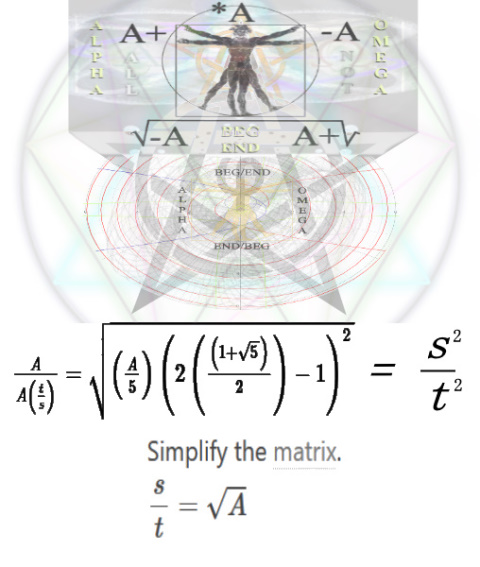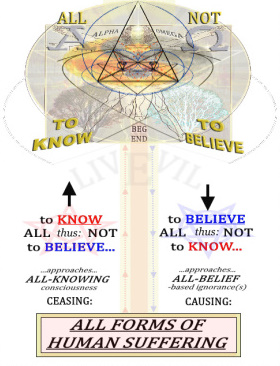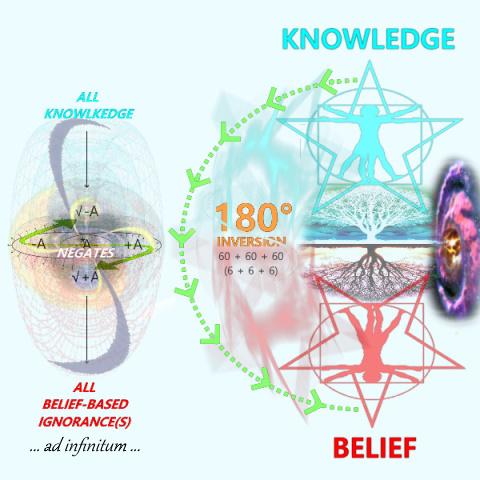Since I do not think metaphysical Ur-Evil is a useful concept (if it is real, it is said one should not desire to know its "inner lodge") but there is something like "wickedness" which could be seen as evil on a local, mundane level.
Someone quoted this phrase just now: "making choices based on impulse rather than desire".
Does this work?
It is nice to restore desire in its honour by seeing the pursuit of it as the antithesis of evil. Which makes more sense than to suggest desires are evil, as that would be a very evil world to inhabit.
practical criterion to designate "evil" or "wickedness".
-
barbarianhorde
- Posts: 52
- Joined: Sun Aug 25, 2019 1:46 pm
- henry quirk
- Posts: 14706
- Joined: Fri May 09, 2008 8:07 pm
- Location: Right here, a little less busy.
"making choices based on impulse rather than desire"
Can't see how the above can stand as a measure of 'evil or wickedness'.
If, on impulse, I tell a joke and make sad person laugh, I can't see how I've done wrong.
If I desperately desire Susan and I take her and lock her away, I can't how I've done right.
I see 'evil' (in a practical sense) as knowingly, willingly, unjustly depriving another of life, liberty, or property.
Joe is mindin' his own business (that is, he's done nuthin' to offend or hurt me). I come along and choose to kill him, or beat him, or steal his Twinkie (that is: I unjustly, without cause, deprive him of life, liberty, or property). I've done wrong to Joe and I did it cuz I chose to. That there is 'evil'.
So: 'evil' or 'wickedness' is chosen, It's a conscious act. The impulse kill, beating, or theft may be indicative of a disordered mind, a sick head, but isn't 'evil' (though, from Joe's place, the distinction is probably irrelevant).
If, on impulse, I tell a joke and make sad person laugh, I can't see how I've done wrong.
If I desperately desire Susan and I take her and lock her away, I can't how I've done right.
I see 'evil' (in a practical sense) as knowingly, willingly, unjustly depriving another of life, liberty, or property.
Joe is mindin' his own business (that is, he's done nuthin' to offend or hurt me). I come along and choose to kill him, or beat him, or steal his Twinkie (that is: I unjustly, without cause, deprive him of life, liberty, or property). I've done wrong to Joe and I did it cuz I chose to. That there is 'evil'.
So: 'evil' or 'wickedness' is chosen, It's a conscious act. The impulse kill, beating, or theft may be indicative of a disordered mind, a sick head, but isn't 'evil' (though, from Joe's place, the distinction is probably irrelevant).
Re: practical criterion to designate "evil" or "wickedness".
The tree of the knowledge of good and evil is the only tree that the Abrahamic god warned against.barbarianhorde wrote: ↑Mon Aug 26, 2019 10:45 pm Since I do not think metaphysical Ur-Evil is a useful concept (if it is real, it is said one should not desire to know its "inner lodge") but there is something like "wickedness" which could be seen as evil on a local, mundane level.
Someone quoted this phrase just now: "making choices based on impulse rather than desire".
Does this work?
It is nice to restore desire in its honour by seeing the pursuit of it as the antithesis of evil. Which makes more sense than to suggest desires are evil, as that would be a very evil world to inhabit.
Good and evil are universal absolutes, thus to merely believe to know them,
while being in-any-way wrong, one is thus absolutely dead wrong. The "believers" thus
know not from which tree they even eat, for being "believers". If one pays close attention to those
who call themselves "believers" in god, esp. at the actual substance of their "belief"
(ie. a/the male central figure idol graven in the psychology of the believer) one will find
that it takes a "believer" to ever "believe" evil is good (without the need/inclining to define them
as per the same admonishment of Genesis 2:17). Thus all eaters of the forbidden fruits are "believers"
and the same is true: it takes a believer to believe themselves superior to another, hence all Nazis are believers.
Transcendental Universal Axes:

Universal Roots: 'Causation+' and '-Cessation' (captures all physical space/time phenomena)
Universal Operators: 'All+' and '-Not' (captures all metaphysical phenomena, space/time-invariant)
___________________________
Captures all causation/cessation of all (and/or not) space/time phenomena.
Humans are designed according to the golden ratio Φ:

Only two directions concerning any possible all-knowing 'state'
(theist/atheist-invariant) and belief-based ignorance(s)

It takes a "believer" to "believe" the opposite of what is true (up to 180-degree inversion).

Consider in light of believer vs. unbeliever.
(ie. "us vs. them!" "us vs.them!")
What side are all the Nazis pinned on?
2020 is coming.
"Believer" beware.
Re: practical criterion to designate "evil" or "wickedness".
There are four states of affair, good versus evil and right versus wrong. Good like answer, evil like question. Right is a manner of following critical thinking which leads to wisdom. Otherwise, you are doing wrong.barbarianhorde wrote: ↑Mon Aug 26, 2019 10:45 pm Since I do not think metaphysical Ur-Evil is a useful concept (if it is real, it is said one should not desire to know its "inner lodge") but there is something like "wickedness" which could be seen as evil on a local, mundane level.
Someone quoted this phrase just now: "making choices based on impulse rather than desire".
Does this work?
It is nice to restore desire in its honour by seeing the pursuit of it as the antithesis of evil. Which makes more sense than to suggest desires are evil, as that would be a very evil world to inhabit.
-
IvoryBlackBishop
- Posts: 122
- Joined: Tue Mar 10, 2020 10:55 pm
Re: practical criterion to designate "evil" or "wickedness".
Per the philosophy of the law, immoral or criminal behavior is based on "harm", or "damages" done to another, taking into account both "irrational" factors such as impulsivity or "crimes of passion", as well as "rational" factors such as intentions, pre-meditations, and so on, with varying degrees of severity, leniency, and so on and so forth, as determined within the context of a court of law.